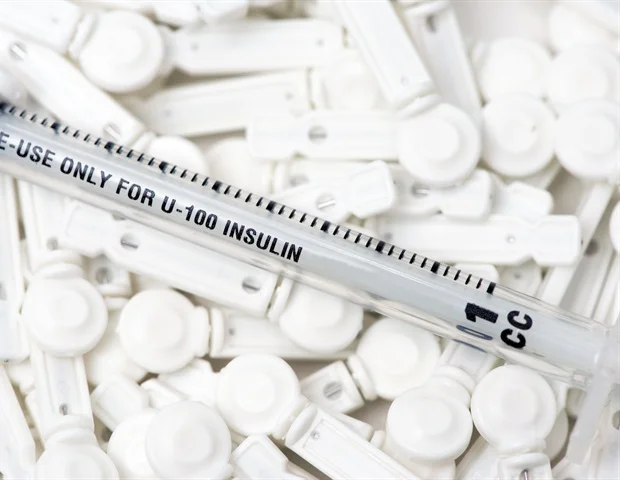NewsColony
City experts to develop a hybrid sensor for detection of diabetes

Dr Sumsun Naher and Professor Aziz Rahman have received a Marie Curie Fellowship to develop a hybrid sensor for the detection of diabetes from exhaled breath.
Diabetes is a chronic disease which causes its sufferers to have high blood sugar levels. The disease causes limb loss, strokes, heart attacks, kidney damage and death if diabetes is not detected early, and carefully managed.
It has also become a persistent and serious health problem in Europe and across the world. Figures provided by the International Diabetes Federation’s Diabetes Atlas point to diabetes affecting over 58m people, costing a staggering €200bn annually for Europe. Globally, in 2017, 451m persons between the age of 18 and 99 were affected by diabetes, and the total global healthcare expenditure was estimated to be €765bn.
Combining their collective expertise in materials processing technologies and optical sensors, Dr Sumsun Naher and Professor Aziz Rahman are developing a hybrid sensor for the detection of diabetes from exhaled breath. Funded by a €225K European Union Marie Curie Fellowship beginning in September 2020 for two years, their research project is titled, Hybrid sensor for diabetes detection from exhaled breath using nanoparticles loaded 1D metal oxides (Sensor4Diabetes).
Human exhaled breath consists of several traces of volatile organic compounds (VOCs) known as “breath markers” and the presence of increased amounts of acetone, ethanol and methyl nitrate has been confirmed in diabetic breath by various sophisticated techniques which are not suitable for routine clinical practice or domestic use due to their non-portability, complexity, bulk-size and high costs.
Metal oxide sensors, however, have considerable potential in detecting VOCs in exhaled breath. Dr Naher and Professor Rahman will be developing a hybrid sensor for analyzing VOCs in breath from 1D metal oxide nanostructures functionalized with different catalytic nanoparticles.
Related Stories
The impedometric and photonic properties of the sensors will be measured from synthetic healthy and synthetic diabetic breath. The 1D metal oxide nanostructures on the sensing platform could provide a high surface-to-volume ratio for surface adsorption/desorption of gas molecules together with electronic and optical properties. The addition of catalytic nanoparticles on the surface of 1D nanostructures will enhance the sensitivity and response time towards VOCs by lowering the oxidation energy, increasing the catalytic surface area and catalytic activation of gas molecules. It is expected that the adoption of this hybrid sensing principle will enhance the selectivity towards individual VOCs which is essential for the development of a very effective diabetic breath analyzer.
We decided to choose this health-related area to detect diabetes from human breath. There is a high demand for non-invasive, affordable and rapid detection devices for continuous diabetes monitoring. Early and affordable diabetes detection technology for monitoring and management of diabetes will help hundreds of thousands of people to reduce serious health problems and life-threatening side effects. All over the globe, governments are struggling to cover the cost of diabetes care.”
Dr Sumsun Naher, City University London
The Diabetes Professional Care (DPC) conference is slated to take place on 11th and 12th November 2020 in London. DPC is a free-to-attend, CPD-accredited, two-day conference and exhibition for HCPs involved in the prevention, treatment and management of diabetes, and its related conditions.
Source: | Medical News
Source: Sound Health and Lasting Wealth
The post City experts to develop a hybrid sensor for detection of diabetes appeared first on NewsColony.
NewsColony
source https://newscolony.com/city-experts-to-develop-a-hybrid-sensor-for-detection-of-diabetes/
Comments
Post a Comment